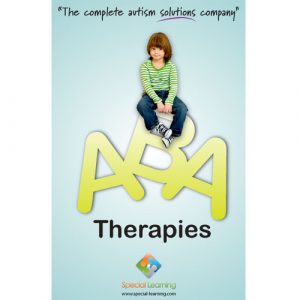Finding and Selecting the Right Developmental-Behavioral Pediatrician
Over the past decade, the pediatric population has encountered a remarkable increase in the incidence and prevalence of disorders such as Attention Deficit Hyperactivity Disorder (ADHD), Autism Spectrum Disorder (ASD), Asthma, Depression, Diabetes, and Obesity (AAP, 2006). This increase in statistics places a greater demand on medical professionals, particularly Developmental-Behavioral Pediatricians, who are currently few in numbers, as recently as 2006, there were only 29 first-year fellows.
This limited resource of medical experts who specialize in the diagnosis of developmental and behavioral disorders makes it challenging to find the right expert for a child. It can be a tedious, frustrating and tiring process. According to a 2009 study conducted by the American Academy of Pediatrics, the wait time for a consultation appointment with a developmental-behavioral expert can take as long as 13 weeks. Early diagnosis and intervention for children with ASD can make a huge difference in allowing children to reach their maximum potential. Therefore, finding the right developmental pediatrician is very crucial.
Following are some recommendations in finding and selecting the right developmental pediatrician:
- Look at credentials
Developmental-Behavioral pediatricians are board-certified general pediatricians who have also trained and are certified in the subspecialty of developmental-behavioral pediatrics. A practice experience of 5 years is usually the norm for these pediatricians. The American Board of Pediatrics has established a broad set of subject areas in which a certified developmental pediatrician should not only be knowledgeable but have also amassed relevant experience through his or her practice.
Since Developmental-Behavioral Pediatrics is a recent addition to the growing list of subspecialties in western medicine (Carey& Crocker 2009), it may be a long process to seek pediatricians who have the right board certifications for Developmental-Behavioral Pediatrics. General pediatricians who have vast experience with Autism Spectrum Disorders (ASD) but have different certifications may also have the ability to diagnose and even treat children with ASD. However, having the appropriate board certification gives an edge to the practicing Developmental-Behavioral Pediatrician.
- Seek referrals from credible pediatricians.
A child’s general pediatrician is usually the first medical professional to notice the red flags or signs and symptoms of ASD. This pediatrician may refer parents to a good Developmental-Behavioral Pediatrician to better diagnose the child and provide the appropriate treatment interventions for his or her particular case. Parents should not hesitate in asking for the credentials of the expert to whom the child is being referred.
- Contact the local hospital or clinic
Asking for a list of Developmental-Behavioral Pediatricians who practice in a facility within one’s community is a good way for parents to scout and select the right pediatrician for their child.
- Ask friends, family, support groups, school counselors.
Asking family and friends is always a convenient way to begin the search for the right Developmental-Behavioral Pediatrician. Friends who have children with ASD may know a great physician and can help get an appointment. The child’s school teacher or guidance counselor may also have recommendations. Support groups are always great resources in finding the right developmental professional.
- Consider the location of the developmental professional in relation to one’s home
Since there is a shortage of Developmental Pediatricians, the long wait for an appointment and the distance needed to travel to and from the pediatrician’s clinic should be considered. In case of emergencies, access to the pediatrician should be timely as long distances may cause unwanted complications.
- Choose a pediatrician who is honest, accessible, and can easily relate to patient needs.
It is imperative that a good doctor-patient relationship is established with a pediatrician. The child’s pediatrician may be considered a good friend with whom one can be honest and a reliable professional who can be trusted. Having a pediatrician who can easily be called in times of emergency is also a good criterion in selecting a developmental pediatrician.
- Book the earliest appointment available.
Since it takes about 13 weeks to schedule an appointment with a Developmental-Behavioral Pediatrician (AAP, 2006), it is best to book the earliest possible appointment. If it takes a long time for the pediatrician to see the child, parents should check in from time to time to see if any appointments have been canceled or rescheduled. It is important to keep in mind that earlier diagnosis will lead to earlier interventions.
Every child deserves the best care and taking time to find and select the right developmental pediatrician for him or her is one way to ensure his or her optimal development.
References:
American Academy of Pediatrics. Aap.org. America’s Children Need Access to Pediatric
Subspecialists. Retrieved July 15, 2011, from http://www.aap.org/workforce/Sec5203FactSheet.pdf
Carey, W.B. & Crocker, A.C. MD (2009). Developmental and Behavioral Pediatrics, Fourth Edition. Philadelphia: Saunders Elsevier
Resources:
Special Learning’s Developmental Physician Directory
Copyright © by Special Learning Inc. All right reserved.
No part of this article may be reproduced in any manner whatsoever without written permission except in the case of brief quotations embodied in critical articles and reviews. For information, contact Special Learning Inc., at: contact@special-learning.com








